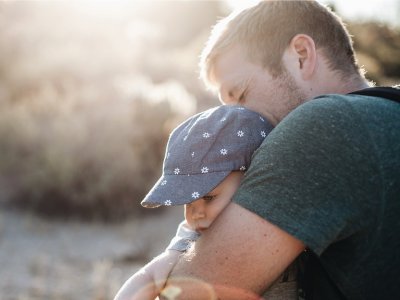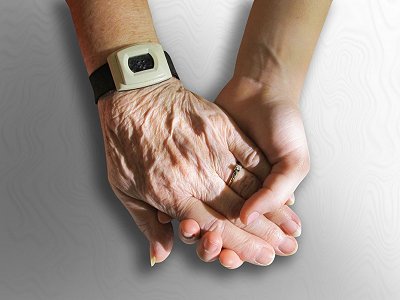
CHRISTIAN HOPE IN A TIME OF RADICAL UNCERTAINTY
Some of you will have seen the first Blade Runner film, starring Harrison Ford, which is set in a miserable future where it rains permanently. This holds no threat for me as I was brought up in Lancashire. But it set a trend in a portrayal of the future as a relentlessly dystopian place where all the promise and hope in life is snuffed out. Special effects have become so convincing now, it has encouraged film makers to gorge on catastrophe. If it isn’t a nuclear apocalypse, it’s climate disaster; if it isn’t zombies, it’s killer robots. The idea that the future might be better than the past has been consigned to the bin, which is interesting because this century and the last one began in a surge of optimism.
In 1900, the British Empire was large, robust and thought to be a good thing everyone could take pride in. We were a confident people and developments in science and technology gave the Victorians hope that social and economic problems would fade away. The sinking of the Titanic came to symbolise the risks of over-confidence and the catastrophic Great War ended any optimism things were getting better. The rest is history, literally.
It's even more interesting to think back to 2000 and how optimistic everything looked then. The tech revolution was exploding; the Cold War had finished (or so we thought); countries were democratising across the world and especially eastern Europe; economies were doing so well a former Chancellor serenaded the end of boom and bust. Some historians already look back and say this century really began on 9/11 because that’s when hope was punctured like a needle in a balloon. Since then, there have been western led wars in Afghanistan and Iraq; a global financial crash that nearly shut the whole system down; a long period of austerity; the divisiveness of Brexit; the rise of populist politicians throwing their (usually male) weight around; the slow release poison of social media; the Covid pandemic; war in Europe; the effects of climate change; a cost of living crisis; the death of the Queen. All by 2022.
I name these events because sometimes we don’t make the cumulative score. A whole lot of stuff has not gone well. It’s true that some people feel it more than others. If you are poor, economic decline will hurt more; even the pandemic hit the poorest harder. But it is not just those who are not well off. Younger generations face a more uncertain future than most of us did growing up. Shiny Instagram photos and funny TikTok videos give the impression of a happy generation, but the surge in mental illness among young people shows many are not coping well.
Where did all the optimism go?
One thing we seem unable to cure is the belief that human beings become better as time goes on. Become better in a way that leads to perfectibility. The human condition just doesn’t work like that. The Gospel is pretty clear about this. There are many ways in which we improve and I would much rather be living now than in previous centuries, but we are fallible and selfish. No matter how fantastic new technologies are, they are made by human beings and reflect our frailties.
This realism about human nature is part of our witness. We can’t be optimistic about the human race because the evidence doesn’t stack up. But as Christians we aren’t called to be optimistic in the first place. Optimism is a vague feeling that things will turn out alright in the end. But it is little more than a personality trait: are you a glass half full or a glass half empty kind of person? And even if life does get better, there are always lots of people for whom it does not get better. So, what are we saying to them?
This is where Christian hope comes in. Optimism is a projection from the present into the future. Christian hope comes at us the other way. It is the future advancing on the present. This is what we mean about the kingdom of God drawing near. If we hold the view that our souls escape this world to float on clouds somewhere, the idea of the kingdom of God drawing near is pretty meaningless. Jesus said we should pray: your kingdom come on earth as it is in heaven.
His resurrection ensures the whole creation will be made new. This is our hope. We can’t build the whole kingdom of God with our bare hands; only God can do this at the last day. But we can build signs to it in our lifetime. In ways that transform lives and communities now. This is what hope looks like. It is Jesus coming to us from the future, from the other side of the grave, having dealt an absolute knock-out blow to sin and death. Joining forces with us by his Spirit to show what will be.
The acclaim: Christ has died, Christ is risen, Christ will come again joins the dotted line between the past, the present and the future. The hope of a coming kingdom is like a pair of jump leads from the future, jolting the engine into life today.
When St Peter wrote his first letter, he was talking to people who formed a minority, a small, relatively powerless, cohort that suffered because of their faith. Embattled minorities can become hopeless ones. St Peter could have said: because you are suffering for your faith, be very careful how you talk to other people about it, because you could get hurt and I don’t want that for you. Instead he said: Always be ready to make your defence to anyone who demands from you an account of the hope that is in you.
Peter had utter confidence in the hope that was set before him and he expected every Jesus follower to feel the same. Not just then, but now. And to do so with ‘gentleness and reverence’. Ours is a shouty era, with people speaking louder and making outlandish claims to get noticed. The heavier we come across, the more likely people will feel threatened by what we say. We have no reason to be insecure, but if we come across as insecure in what we believe, this will communicate itself. Christian witness is respectful of other views and not frightened by them. We may seek to persuade – St Peter talks of making our defence of what we believe – but we should do so in a loving way, and that involves listening very carefully to what the other person has to say, rather than looking for the space to jump in and refute it. As I said at the last lay ministers’ conference, one of the most distinctive things we can offer today is a genuine listening ear, because our culture has largely given up on listening properly.
Our situation is so very different to the early Church’s. Yes, we are in a minority now. But our country has been hugely shaped by this Gospel and we continue to feel the blessing of that. We are free to share our faith; we even have an established Church.
The strange thing is why we manifest some of the signs of hopelessness in our churches.
In a person, symptoms of a lack of hope include anger and irritability, a loss of energy, an absence of joy, a self-loathing that is always criticising. What goes for a person works for a community too. It may be harsh to say our churches show these symptoms, but there is enough of it to make us feel uncomfortable. And it is also true of society.
Of all the things we could offer our nation right now, a sense of hope is top of the list. This calls for an active resistance to lies and injustice, not passive acceptance of what’s wrong because that’s another sign of hopelessness – that you just don’t care anymore.
But the good news is that the kingdom of God continues to draw near, even when we’re not thinking about it. And to help us grasp this, it is as if God is offering us a pair of varifocal lenses. I really don’t like varifocal lenses and prefer to use two different pairs of glasses; one for reading and one for driving. In this way, I am like the Church at its clumsiest, where it can only focus on one thing at a time and usually at what is right in front of us. Varifocal lenses enable us to see both what is in front of us and what lies at a distance, at the flick of an eye. This is how the people of God should see. Because what is coming at us from a distance is coming to us at speed, and it is going to transform everything in its path.
Bishop Simon
October 8, 2022
POPULAR ARTICLES

God In The Cow Shed
2020 has been dominated by the C word. Not that C word. I mean conspiracy theory involve space. Some people believe the

Viral With The Holy Spirit
Since the tech revolution, insurgent new start-ups have enjoyed using the word ‘disruption’

Long Lost family
Some types of storytelling mess with your brain. Intentionally. Like one of those novels where you assume

Valuing Age
Lots of work is being done round unconscious bias in society, especially around gender and ethnicity

